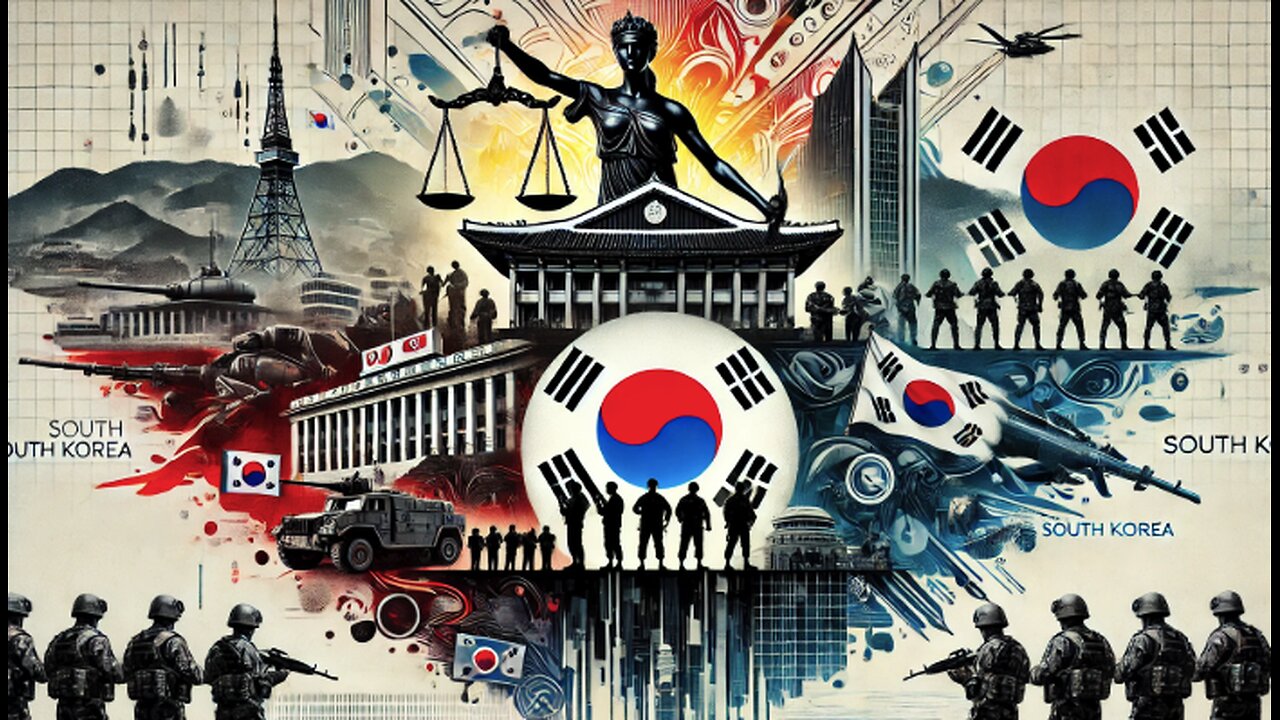Premium Only Content

🇰🇷 South Korea’s Martial Law: What It Means for the Future
Welcome to Parvez's Trade! In this video, we delve into the recent developments in South Korea, focusing on the lifting of martial law under President Yoon’s administration. We analyze the implications for South Korea's democracy, the role of the military during crises, and who ultimately holds power in critical moments.
📌 Topics Covered:
1️⃣ Yoon’s Martial Law and Its Repeal:
Why martial law was declared and the context surrounding its implementation.
The South Korean parliament’s decision to lift martial law and its significance.
2️⃣ Implications for South Korea’s Future:
How this decision reflects on South Korea’s democratic institutions.
The potential impact on civil-military relations and public trust.
3️⃣ Military Power During Crises:
Understanding who has the final say over the South Korean military in times of crisis.
The balance between civilian oversight and military autonomy in critical situations.
4️⃣ Regional Implications:
How this development is viewed by neighboring countries like North Korea, China, and Japan.
The potential impact on South Korea’s defense posture and alliances.
💡 Key Takeaways:
The lifting of martial law is a significant moment for South Korea’s democracy and governance.
Civilian oversight of the military is crucial to maintaining democratic norms during crises.
The decision sets a precedent for how South Korea handles internal and external challenges in the future.
🌟 Join the Discussion!
What do you think about South Korea’s approach to martial law and military control during crises? Share your thoughts in the comments below!
📢 Don’t Forget to Subscribe!
If you found this analysis insightful, hit the 👍 button, share it with your friends, and subscribe to Parvez's Trade for more discussions on geopolitics, governance, and global trends.
#SouthKorea, #MartialLaw, #MilitaryControl, #Democracy, #ParvezsTrade
-
 1:30:14
1:30:14
barstoolsports
14 hours agoBarstool Coworkers Compete For Largest Cash Prize Yet | Surviving Barstool S4 Ep. 1
261K19 -
 LIVE
LIVE
SpartakusLIVE
9 hours agoMy BICEPS are NOT photoshopped
2,787 watching -
 1:15:26
1:15:26
Kim Iversen
10 hours agoFinal House COVID-19 Report: Claims Vaccines Were A Disaster But Operation Warp Speed Was a Success...
69.9K116 -
 1:14:19
1:14:19
The Anthony Rogers Show
13 hours agoEpisode 248 - Light Language & Intergalactic Gifts In The Higher Realms
52K6 -
 2:38:12
2:38:12
Tundra Gaming Live
9 hours ago $3.26 earnedThe Worlds Okayest War Thunder Stream
37K1 -
 10:57
10:57
Tactical Advisor
12 hours agoNEW Compact Echelon | Springfield 4.0 C (FIRST LOOK)
72.3K1 -
 1:23:56
1:23:56
Glenn Greenwald
12 hours agoBiden Pardons Hunter After Months Of Vowing He Wouldn't; Plus: Biden's Career Imprisoning Crack Addicts | SYSTEM UPDATE #374
134K135 -
 1:28:16
1:28:16
Barry Cunningham
8 hours agoBANNED ON YOUTUBE SERIES: Inside The Border Crisis! Barry Cunningham Interview With Border Agent
62.4K87 -
 2:18:59
2:18:59
WeAreChange
10 hours agoCOUP ATTEMPT?! Dems Trying To Usurp Control Of Military In Move Against Trump
120K36 -
 1:17:41
1:17:41
Josh Pate's College Football Show
8 hours ago $2.98 earnedCFP Rankings Reaction | Conference Championship Predictions | New JP Poll | Portal Chaos Ahead
39.5K1